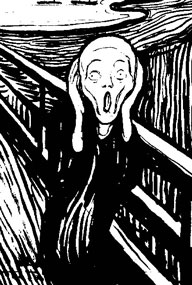


JOHN LI, M.D.
OTOLOGY NEUROTOLOGY RESOURCES
210 Jupiter Lakes Blvd #5105
Jupiter, FL 33458
Phone: (561)-748-4445
Fax: (561)-748-4449
Email: Dr-Li@Dr-Li.net
Tinnitus
Answers to Common Questions about Tinnitus

What is tinnitus?
Tinnitus is a phantom sound. It is a perception of sound originating within the body not actually related to any outside source. It can be either subjective (noise only the patient can hear), or objective (noise that both an outside observer and the patient can hear). Subjective tinnitus is much more common than Objective tinnitus.
What can cause tinnitus?
There are many possible causes for tinnitus. Some are not serious. (For example, a small plug of ear wax might cause temporary tinnitus.) Tinnitus can also be a symptom of more serious middle ear problems such as a hole in the eardrum, infection, an accumulation of fluid or stiffening (otosclerosis) of the middle ear bones. Tinnitus can also be a symptom of a head and neck aneurysm or acoustic neuroma, either of which can be life threatening. These problems often involve a loss of hearing.
Subjective tinnitus may also be caused by allergy, high (or low) blood pressure, a tumor, diabetes, thyroid problems, injury to the head or neck, and a variety of other specific causes including: anti-inflammatories, antibiotics, sedatives, antidepressants and aspirin.
Objective tinnitus -usually pulsating, humming, or clicking - is often easier to diagnose because it is mechanically caused by things such as turbulent blood flow, muscular spasms or anatomical distortions (trauma or tumors). The treatment will be quite different in each case.
What is the most common cause of tinnitus?
Most tinnitus comes from damage to the microscopic endings (hair cells) of the hearing nerve in the inner ear. The health of these nerve endings is important for acute hearing, and injury to them brings on hearing loss and often tinnitus. Advancing age is generally accompanied by a certain amount of hearing nerve impairment and even tinnitus. Exposure to loud noises is probably the leading cause of tinnitus in today's world, and it often damages hearing as well. Unfortunately, many people are unaware of, or unconcerned about, the harmful effects of excessively loud industrial noise, firearms noise, high intensity music and other loud noises. Stereo headsets played too loudly appear to be an increasing cause of ear damage in otherwise healthy young people.
Dr Li’s analogies for Tinnitus: Tinnitus is like a damaged radio station. The inner ear transmits sound to the brain, which is like the receiver of a radio. In a perfect situation, music comes through clearly as music and silence comes through clearly as silence. However if the transmitter is damaged, the receiver can only pick up static -- which is like tinnitus.
Tinnitus is also like phantom pain. Normally, the foot sends signals to the brain, where there are receiving BRAIN CELLS that are responsible for telling the brain how the foot is feeling. Someone who has lost a leg may “feel” foot pain even though they don’t have a foot because these BRAIN CELLS are now unemployed because there is no foot. Likewise someone can “feel” noises in the frequencies or pitches of hearing that have been damaged. (frequencies that are not being transmitted properly by the damaged inner ear.)
What does the evaluation and treatment of tinnitus involve?
The most important reason for seeing an ear doctor for tinnitus is to make sure that there is not a serious problem in your auditory system. If he or she finds that your tinnitus has a specific cause, he or she may be able to remove the cause and thus eliminate the noise. This investigation may require a fairly extensive work-up including x-rays, audiograms, balance testing and blood tests.
The treatment of tinnitus can include simple wax removal, medication, electrical stimulation, masking, biofeedback, acupuncture and even surgery. Unfortunately, many causes of tinnitus cannot be reversed. Even so, many things can be done to lessen the severity of tinnitus.
1. Avoid exposure to loud sounds and noises. Wear hearing protection devices if noise is unavoidable.
2. Avoid drugs that affect the inner ear unless they are absolutely needed. Ask your doctor for alternatives.
| Aspirin, especially in large doses can be a possible cause of tinnitus. | |
| Lasix and other water pills may worsen the ringing. | |
| Nerve stimulants such as coffee and colas (caffeine), tobacco (nicotine) and marijuana. | |
| Gentamycin class antibiotics are toxic to the inner ear. |
3. Improve inner ear blood flow.
| Vitamins and Extracts - The following have reportedly beneficial effects in the treatment of tinnitus by increasing inner ear blood circulation. | |
| Niacin | |
| Lipoflavnoids | |
| Ginko-Biloba Extracts | |
| Decrease your intake of salt (which impairs good blood circulation). | |
| Have your blood pressure checked; if it is high, seek your doctor's help to get it under control. | |
| Exercise daily. It improves circulation. |
4. Reduce exposure to nervous anxiety and stress.
| Get adequate rest and avoid overfatigue. | |
| Stop worrying about the noise. Tinnitus will not cause you to go deaf or result in losing your mind or your life. Recognize your head noises as an annoying but minor reality, and then learn to ignore them as much as possible. |
Electrical Stimulation
Electrical stimulation is physical therapy modality that in the past has been used primarily for rehabilitation of chronic pain and musculoskeletal problems. It has recently been found that an electrical current could be applied to the external ear with suppression of tinnitus. Applied with a blunt tipped probe, the microvoltage current is distributed around the affected ear. The amount of current is adjusted to the patient's comfort level. It tingles a little, but does not hurt. Success is quite variable. One publication reported that 82% of their patients showed some level of improvement. In our studies, we are seeing about a 50% benefit rate. Less than 2% have experienced temporary ill side-effects. This is done by an electrical stimulation therapist.
Tinnitus masking
Tinnitus is usually more bothersome when the surroundings are quiet, especially when you are in bed. A competing sound such as a ticking clock or a radio may help mask head noises, making them less noticeable. Some physicians suggest listening to FM music at low volume. Many patients have been helped by dialing between two FM stations for the purpose of picking up subdued static, again at low volume. Such static may be extremely soothing, with a soft, rushing kind of sound known as white noise. Other patients prefer small electrical devices (e.g. Sleep Mate) which produce soothing background noise. These are sold through certain department stores and catalogs. The tinnitus masker is a small electronic instrument built into or combined with a hearing aid. It generates a competitive but pleasant sound which for some individuals masks the tinnitus by reducing awareness of head noise. The result is similar to successful use of white noise-by helping a patient overcome his awareness of tinnitus before going to sleep at night.
Hearing aids
Since Tinnitus can be from the LACK of appropriate hearing input, people with impaired hearing sometimes find that their hearing aids reduce head noise and occasionally cause it to go away. Even a person with a minor hearing deficit may find that hearing aids relieve his tinnitus. However, a thorough trial before purchase is advisable if the primary purpose is the relief of tinnitus. When the hearing aid is removed, the head noise may or may not return. Now, the latest advances in hearing aids have incorporated some sound therapies aimed towards improving Tinnitus.
Hearing aids with “Zen”
Some hearing devices have special programs that allow for the playback of certain patterns of sound that help either suppress Tinnitus, or
Tinnitus retraining therapy
Is a relatively new modality of the past few years that has been touted to have an 83% chance of tinnitus improvement. It involves psychoacoustic therapy. It is a long process that may take over a year to master. It involves wearing a hearing aid like sound device as part of the therapy. There are only a few centers around the country that offer this treatment.
Neuromonics utilizes an iPod like device that is played on a daily basis. It is a custom program tuned to your particular Tinnitus frequency and type.
Use of music as a medium for treatment.
Intermittent exposure to the tinnitus signal.
Positive engagement of the limbic system and promotion of relaxation
Efficient promotion of tinnitus desensitization
Biofeedback
Biofeedback involves concentration and relaxation exercises designed to teach voluntary control of the circulation to various parts of the body and how to relax muscle groups throughout the body. When this type of control is accomplished, it may be effective in reducing the intensity of tinnitus in some patients.
Things to AVOID:
Ear candles: At best, it might feel warm and fuzzy. However, it is a scam when it comes to helping with anything. It does not remove wax. (just candle any inanimate object, and you will get the same “wax deposits” the supposedly leach out of your ear). At worst, it will leave melted tallow in your ear canal… which is very difficult to remove.
“Ring Stop” ear drops…SCAM! No scientific basis.
Low Level Laser Light therapy: Again, No scientific basis. There is no way for the laser to penetrate to the cochlea.
What’s New in Tinnitus Research?
There is talk of using extracranial magnetic stimulation to suppress tinnitus. This is relatively early research and is nowhere close to being used on a widespread basis. Some have experimented with transtympanic injection of lidocaine and other medications with limited success. There are still others who are experimenting with brain surgery, shutting down portions of brain responsible for tinnitus. There is ongoing research in these areas.
Conclusion
Prior to any treatment of tinnitus or head noise, it is important that you have a evaluation by an otolaryngologist. Once the doctor has completed this evaluation, an essential part of the treatment will be to help you to understand your tinnitus, what has caused it, and how best it may be treated. Your hearing is too precious to treat carelessly. That is why this pamphlet is offered. We hope it has been helpful. If you have further questions, we will be happy to try to answer them for you.
This information was written by Dr. Li, supplemented with information provided by the American Academy of Otolaryngology Head and Neck Surgery, Inc.